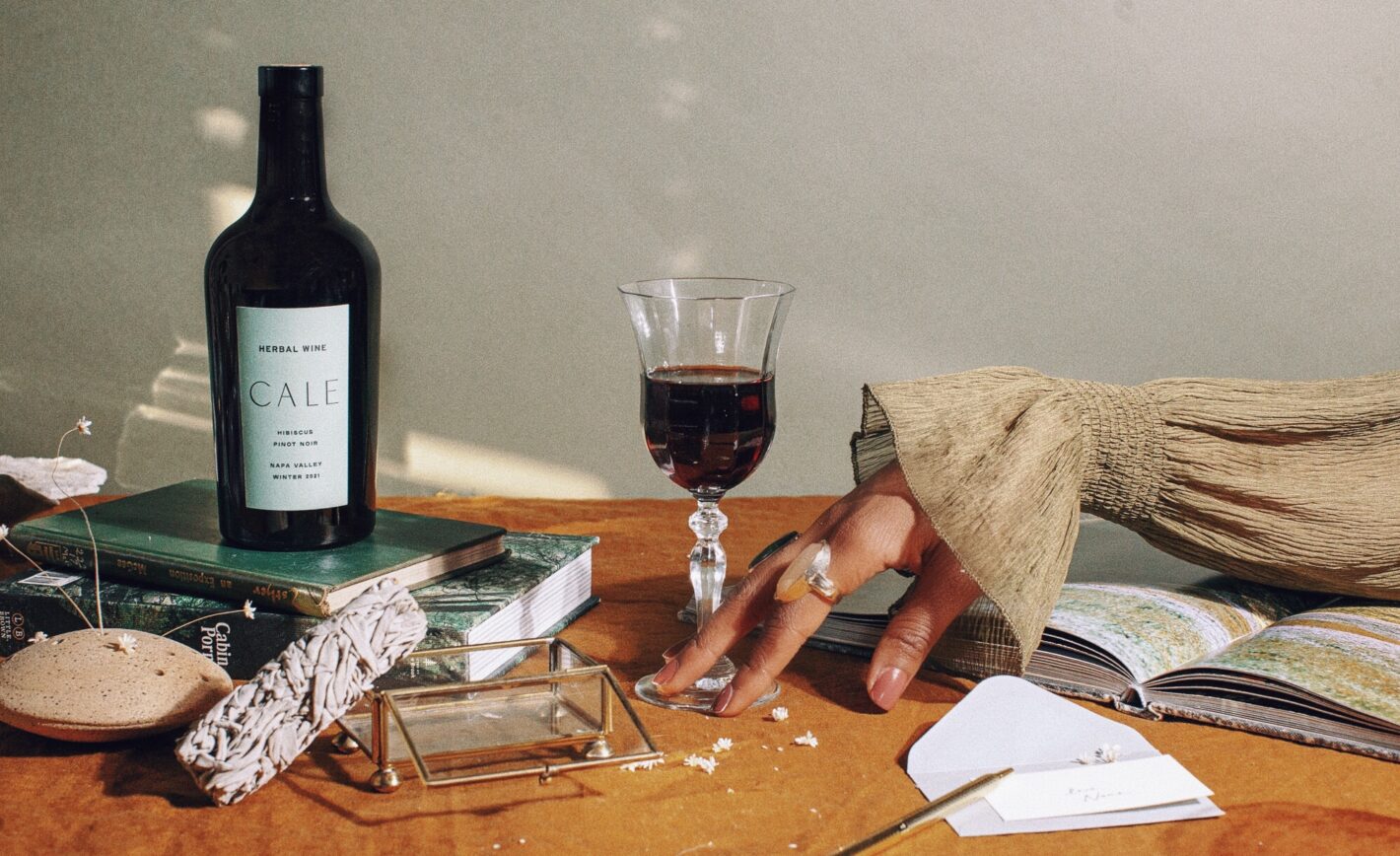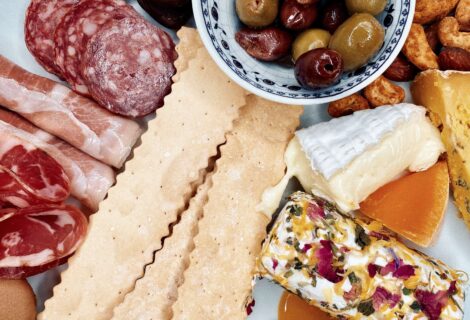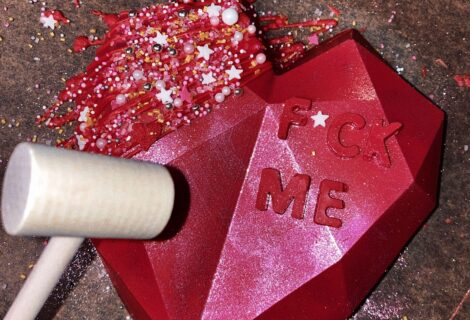We caught up with Nana the Founder and CEO of Cale (pronounced kale, with a “c”) before the official launch of their first-ever herbal wine, Hibiscus Pinot Noir. Labeled the “Weekday Wine,” Cale is made with adaptogens and medicinal mushrooms which is right up our alley. In this interview, Nana, a former Miss USA and a two-time All American shares how she learned to heal herself during a 10-day trip to the Caribbean and shortly thereafter, founded the brand making wines we can enjoy no matter the day.
What does Cale mean?
Cale is an illusion to the vegetable kale. I didn’t really put much thought into it. It was just like a very… one-syllable word.
Why did you launch Cale?
Cale is a manifestation of my wellness journey. It’s not that I just came up with this in thin air. It was actually out of this struggle that had been my life. In November 2017, I had gone to the doctor and they told me I was on the precipice of a lifelong chronic disease. I was in my early thirties and nothing else was going right. I had hit a ceiling at my job. I’d asked for a promotion and my bosses said ‘No,’ even though I had been there for three years and never had one. And many other things. So it was a very, very dark time.
I looked around and was like, ‘What’s going on?’ Not healthy nor happy. I needed to change. I needed to fix this. And so I started asking simple questions like, ‘Okay, if I’m about to be ill, what am I doing wrong? How am I supposed to be eating? How am I supposed to be working out?’ Really beginner questions, because I didn’t understand the basics of health and wellness. I was neither of those things.
Those small questions turned into bigger, existential questions. For example, ‘What is the meaning of life? Why am I on earth? What is going on here?’ It was the turn of the year 2018, so I decided to write about it and wrote a year-long blog. Each week, I would tackle a topic in wellness. I’d take a beginner’s mindset, look up the science behind it, the spirituality behind it, and the ancient traditions behind it.
Even if the room is burning, you can cultivate wellness inside of you where you’re generally, utterly grateful to wake up every single day of your life. And I’ve gotten to that point.
People thought I was just writing out of interest, but it was actually because I was trying to heal myself and truly understand what it is to be healthy and well. To be living in your purpose and enjoying life. Because you can walk around in bliss. Even if the room is burning, you can cultivate wellness inside of you where you’re generally, utterly grateful to wake up every single day of your life. And I’ve gotten to that point.
At the end of 2018, I decided to go on a trip to Costa Rica to celebrate the writing. It was a 10-day trip on the Caribbean side of the nation where the jungle meets the ocean. I ate fresh food every single day and didn’t wear shoes. We swam naked under the sunset every single day. It’s kind of like returning to this kind of primal, authentic self.
It was there, on this permaculture farm, where I learned the power of plants, herbs, and botanicals because the founder of the property would take us around and teach us. ‘This flower, if you brew it for half an hour and let it sit overnight, will help you with stomach aches. This one helps you sleep. This one’s adaptogenic. This is a bark that helps you.’ On and on and on. So I learned herbalism, which is the knowledge of how plants and herbs heal. And suddenly, it just clicked.
How was Cale born?
I came back to New York City and started apprenticing with herbalists here. And as I was studying, I came across a tradition of herbal wine. I was drinking less alcohol and looking for better, alternative ways to drink. So I started playing around in my apartment in New York. I’d go to my mom’s house and play around with herbal fermentation, and that’s when Cale was born.
Before that era, we were fermenting a slew of herbs and I’m trying to bring that tradition back.
It was around this time last year that I got my first grant funding which led me through product development. It took me a year to find production partners: branding, marketing, and PR. My traction includes Pernod Ricard, the second biggest alcohol spirits portfolio in the world. They hold things like Corona, not virus, Corona beer. So they have an incubator and I’m a part of the incubator and several other markers that have led me to be able to launch and realize that people are really interested in plants and herbs and how they heal. It’s been fascinating.
What is herbal wine?
In general, herbal wine is an ancient technique that goes as far back as ancient Greek, Rome, Egyptians. They would ferment herbs in lieu of water because it wasn’t safe to drink. They were fermenting metal into beer and wine, lemon balm, ginseng, red clover. And it was around the German purity act that the only herb to survive fermentation really is huck. And as you know huck is a sedative. That’s why when you drink beer, you get a little sleepy. Before that era, we were fermenting a slew of herbs and I’m trying to bring that tradition back.
How do adaptogens and alcohol work together?
These can be fermented up to 12% alcohol by volume. I’ve lowered the alcohol because I like lower alcohol in general. It allows me to be social with my friends and wake up the next day and be productive or take a yoga class. So, the process of fermentation opens up different parts of the plant to express itself and for its healing properties to come out. You can boil an herb in which different minerals and different volatile oils come out. And through fermentation, different properties come out too. So it still remains healing even though there’s a bit of alcohol in it.
This interview has been edited for length and clarity.


